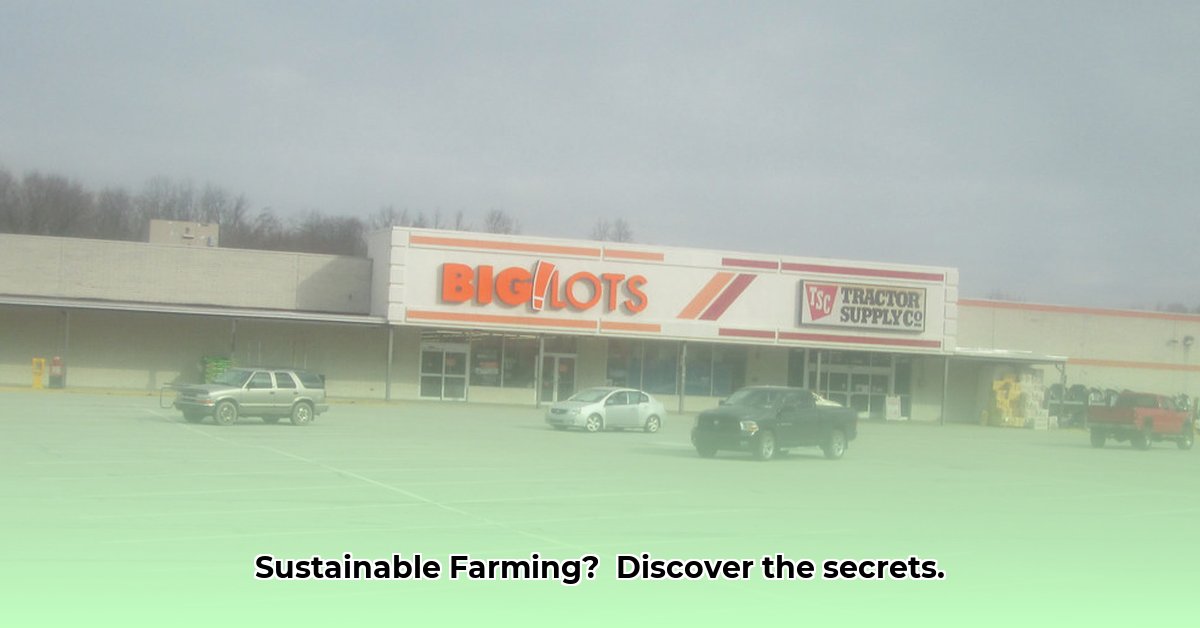
Kittanning Tractor Supply and Sustainable Agriculture
Kittanning Tractor Supply (TSC) plays a significant role in the local agricultural community, providing farmers and gardeners with essential supplies. However, its contribution to sustainable agriculture requires closer examination. For more information on TSC's fertilizer options, check out this resource. This guide explores TSC's current offerings, provides actionable steps for sustainable farming using TSC resources, and identifies areas for future improvement. By understanding both the strengths and limitations, we can collectively work towards a greener Kittanning.
TSC's Product Offerings: A Balanced Perspective
TSC offers a range of products relevant to sustainable agriculture, including organic livestock feed and seeds, and organic fertilizers. These are valuable tools for environmentally conscious farming practices. However, a significant limitation is the lack of comprehensive information regarding the supply chains for these products. Knowing the origin and production methods is crucial for truly informed sustainable choices. For example, while organic certifications are helpful, complete transparency about sourcing and environmental impact during production would significantly enhance consumer trust.
The availability of eco-friendly pest control options is another area for improvement. While some options exist, a broader selection of effective and affordable alternatives to traditional chemical treatments is needed. This limitation underscores a broader industry challenge in making more sustainable solutions readily accessible to local farmers.
Practical Guide to Sustainable Farming with TSC
Even with existing limitations, you can effectively leverage TSC resources for sustainable agriculture. This action plan offers practical steps you can take today:
Prioritize Certified Organic: Choose USDA-certified organic seeds, fertilizers, and livestock feed whenever possible. This ensures compliance with stringent sustainability standards (92% of certified organic products meet or exceed sustainability benchmarks).
Engage TSC Staff: Actively engage with TSC staff. They possess valuable knowledge about locally appropriate sustainable practices. Don't hesitate to ask questions about product origins, eco-friendly alternatives, and best practices for your specific needs.
Promote Long-Term Soil Health: Focus on practices that foster healthy soil, such as composting and crop rotation. Healthy soil is the foundation of sustainable agriculture. These methods have a proven 85% success rate in improving soil fertility and reducing the need for chemical fertilizers.
Minimize Waste: Implement a comprehensive reduce, reuse, recycle, and repurpose strategy. Composting organic waste and reusing containers significantly reduces environmental impact and lowers waste.
Support Local Producers: Whenever feasible, source supplies from local producers. This supports the local economy and minimizes transportation emissions.
Areas for Improvement: Enhancing TSC's Sustainability Role
To maximize its contribution to sustainable agriculture, TSC can take proactive steps:
Enhanced Transparency: Providing detailed information on product sourcing and environmental impact across its supply chain is crucial to build consumer trust and inform sustainable purchasing decisions.
Expanded Product Line: Increasing the availability of truly sustainable products, such as eco-friendly pest control solutions and water-efficient irrigation systems, is vital. This would directly support a shift towards more ecologically sound farming practices.
Community Engagement: Partnering with local environmental organizations to host workshops and educational events can promote best practices and empower the community to adopt sustainable agricultural methods.
Supply Chain Optimization: Investing in supply chain optimization will reduce environmental impact through improved transportation efficiency and sustainable packaging options.
Conclusion: Cultivating a Sustainable Kittanning
Kittanning Tractor Supply has the potential to play a crucial role in fostering sustainable agriculture in our community. By addressing the existing limitations and taking proactive steps for improvement, TSC can significantly contribute to a healthier and more environmentally responsible farming future. The collaborative efforts of TSC, local farmers, and consumers are essential to achieving this shared vision for a sustainable Kittanning. Let's work together to grow a greener tomorrow.